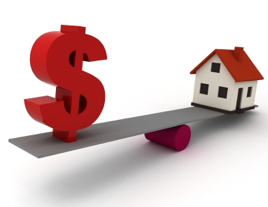In the past, with home prices rising and assessments lagging behind, outdated home assessments have often worked to the benefit of the homeowner; however, with home prices falling from year to year, this is not always the case anymore. It’s still possible to contest housing assessments, but there are a few things that agents should tell the homeowner to consider before doing so.
 “There’s no doubt that the number of appeals are up considerably as a result of the decline in the market. There’s no doubt there are many more meritorious cases,” David B. Wolfe, a partner with the law firm Skoloff & Wolfe in Livingston, N.J., told MarketWatch.
“There’s no doubt that the number of appeals are up considerably as a result of the decline in the market. There’s no doubt there are many more meritorious cases,” David B. Wolfe, a partner with the law firm Skoloff & Wolfe in Livingston, N.J., told MarketWatch.
The reason for all of the appeal cases likely has to do with the 4.1 percent drop in housing prices, from last year to this one, that was recorded in July. This puts housing prices down about 31 percent from their peak.
This does not mean that housing prices all across the nation are falling rapidly, which is why homeowners considering contesting their assessments need to be cautious–homeowners who challenge an assessment run the risk of revealing that their assessment is too low, and as a result their tax liability could rise.
“You appeal at your own peril. If your property is under-assessed, your taxes could be increased by filing a tax appeal,” Wolfe said. “The fact that the market is down doesn’t mean that every property is over-assessed and entitled to relief.”
“In the past, people would not care if they had a stale assessment because it worked in their favor. Now, with the reversal, it has changed things,” said John Schepisi, president of Schepisi & McLaughlin, a law firm in Englewood Cliffs, N.J.
Here are some important things to consider before making a move towards challenging an assessment:
1. Know the deadline
“The filing dates are different throughout the country. If you miss the date, you lose your right to appeal that year,” Wolfe said.
2. Look for obvious errors
Request a copy of the property record from the assessor prior to challenging the assessment. Make sure that all of the information is correct, and if it isn’t, take the steps to make sure it gets corrected.
3. Determine estimated value
By searching for the values of similar homes, you can get a good estimate of what your own home should be valued at. However, be careful when using neighbors’ homes as comparison points in case they have not been assessed correctly. If your assessment challenge goes before a review board, you will need an exact value.
4. Contact the assessor’s office
Nobody has more information about the assessment and the process of assessing than the assessor’s office itself. For the most accurate information, this is a good place to go. A visit to the assessor could also save you from having to present your case to a review board.
5. Consider hiring help
If you feel overwhelmed by the idea of appealing before a review board, hiring an attorney may be a good choice. An attorney is not a necessity, however; many challengers have gone through the process on their own.
The bottom line from each of these tips is one main idea: keep yourself informed. Staying in the loop with regards to the assessing process and the value of your home will help you out when challenging an assessment.
Yes, i totally agreed with you. Appealing for the property tax is profitable. But many of the people ignore this important step. To win , you must appeal . If you found it difficult, then you can hire an expert and you will not get charged until your appeal is approved.
It is my great pleasure to visit your website and to enjoy your excellent post here. I like that very much.